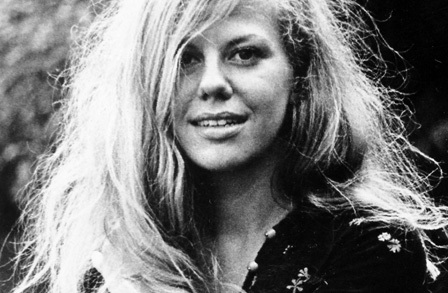
On a rainy Saturday in September, I took a MetroNorth train from Manhattan to Westport, Connecticut, to visit Erica Jong in her weekend home. It’s tucked away in the woods down a serpentine driveway, just as I expected. This is the house that I’d read about in some of her novels—well, not this house exactly, but the house of her fictional doppelganger Isadora Wing, a novelist herself, who also writes provocative books in an attic study painted with purple walls, just like Jong.
Isadora first showed up in the infamous Fear of Flying, which made Jong, then a poet and academic, a household name in 1973. The wife of a Chinese-American Freudian psychoanalyst (like Jong at the time), Isadora takes off across Europe with a Laingian analyst named Adrian Goodlove, haplessly and hilariously pursuing truth through sexual freedom. (Her story continues in Jong’s How to Save Your Own Life and Parachutes and Kisses.) Fear of Flying turns 40 this October, and will be re-released in three new editions. It has sold over 20 million copies, and has never gone out of print.
I’ve been a fan of Jong’s since late high school. Discovering her work and her fiery, unapologetically sexual characters felt like finding a sex-positive fairy godmother in print. I had pages and pages of questions, and an hour to ask them. We spoke in her purple attic study. —Whitney Joiner
I. HOSTILE REVIEWS FROM LITTLE BOY WRITERS
THE BELIEVER: I read that you told Mademoiselle in the late 70s that you were one of the most interviewed people in the world.
ERICA JONG: Yes.
BLVR: Fear of Flying had come out, it was a monumental bestseller, and you were on the circuit. I thought about my list of questions and I thought, What more does she have to say? But Fear of Flying came out 40 years ago; so many readers have come to it since then, and weren’t around for what must’ve been such a heady time.
EJ: Heady and terrifying. Terrifying because you have no idea what fame in America is like; it’s horrible. If I go to Germany or Italy, people say “la maestra,” and I’m thought of as an artist. Here, sometimes I look at Lena Dunham and I think, poor girl. She must be going through hell. People in America—if you are a woman and you talk about sex, well, women line up at your door and want to move in with you and leave their husbands, and men all want to fuck you. And they think you’re available. And it never occurs to them that...
You have reached your article limit
Sign up for a digital subscription and continue reading all new issues, plus our entire archives, for just $1.50/month.
Already a subscriber? Sign in




